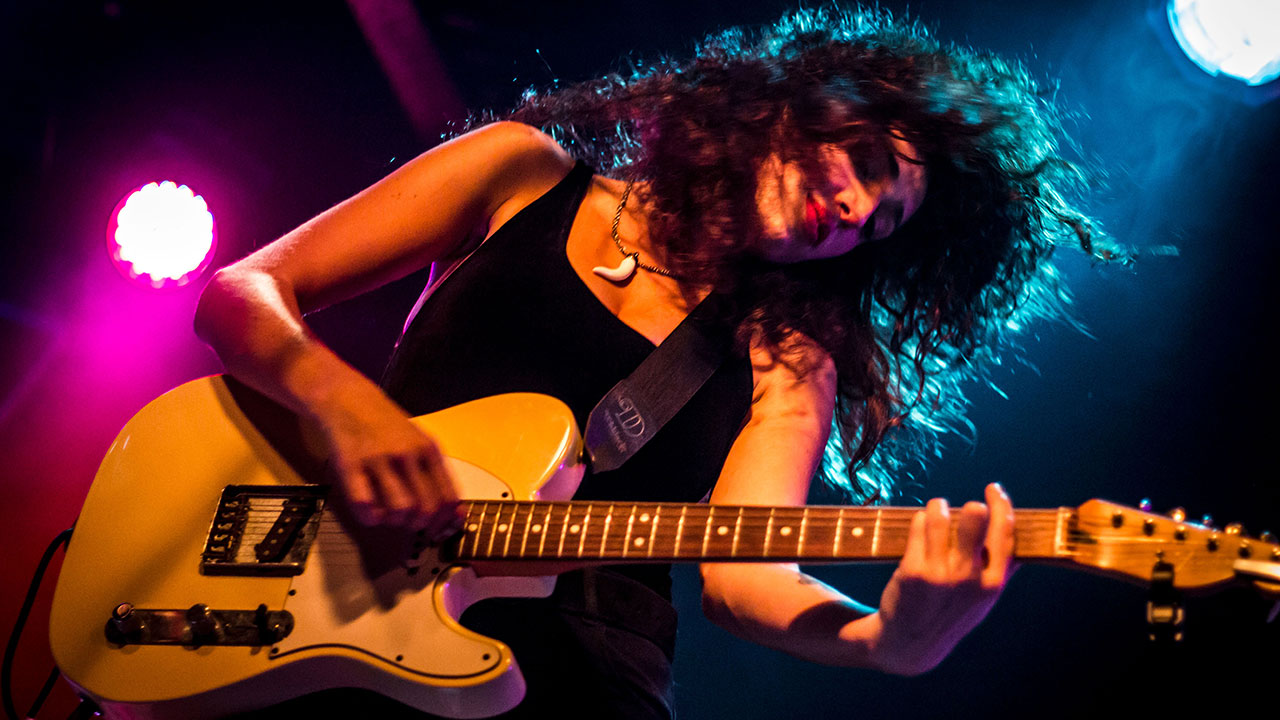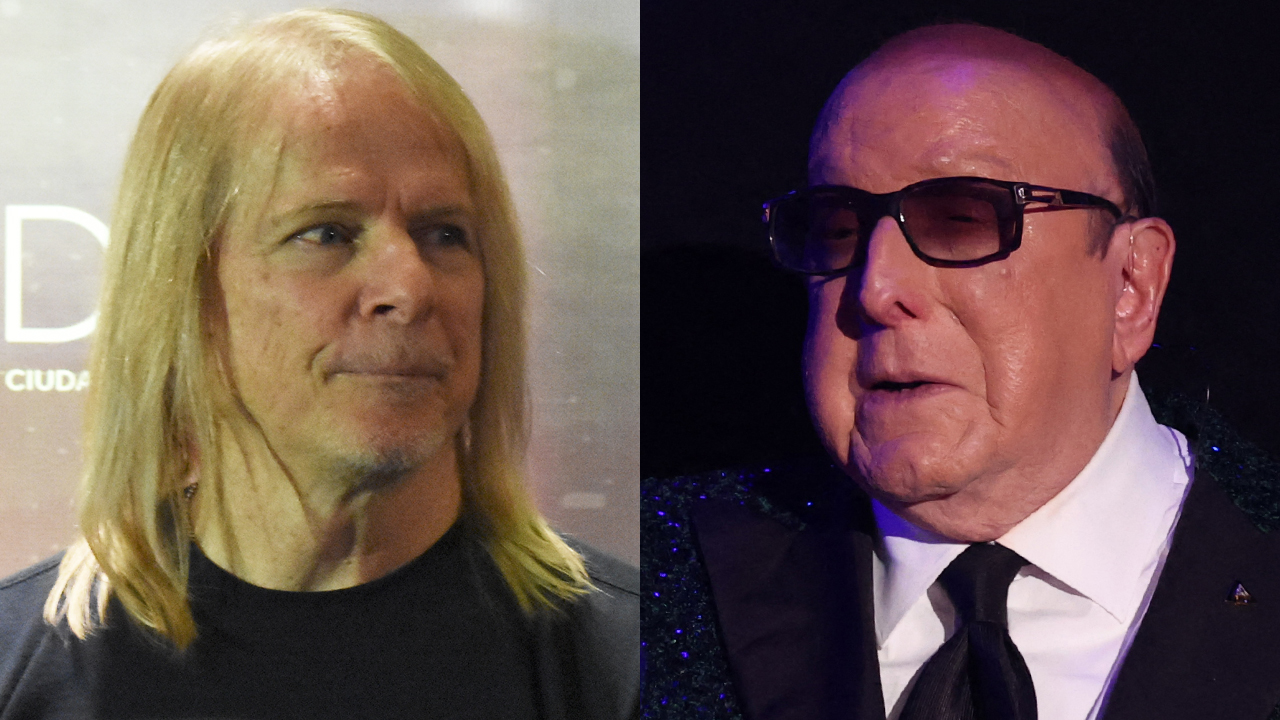Meet the artists leading Argentina's feminist revolution
Argentina has undergone significant changes in the past decade, in no small part thanks to the artists leading a feminist revolution from the country's underground music scenes

Select the newsletters you’d like to receive. Then, add your email to sign up.
You are now subscribed
Your newsletter sign-up was successful
Want to add more newsletters?

Every Friday
Louder
Louder’s weekly newsletter is jam-packed with the team’s personal highlights from the last seven days, including features, breaking news, reviews and tons of juicy exclusives from the world of alternative music.

Every Friday
Classic Rock
The Classic Rock newsletter is an essential read for the discerning rock fan. Every week we bring you the news, reviews and the very best features and interviews from our extensive archive. Written by rock fans for rock fans.

Every Friday
Metal Hammer
For the last four decades Metal Hammer has been the world’s greatest metal magazine. Created by metalheads for metalheads, ‘Hammer takes you behind the scenes, closer to the action, and nearer to the bands that you love the most.

Every Friday
Prog
The Prog newsletter brings you the very best of Prog Magazine and our website, every Friday. We'll deliver you the very latest news from the Prog universe, informative features and archive material from Prog’s impressive vault.
At the end of 2019, the Argentinian music scene had a reason to celebrate: the country's senators passed a law which stated that music festivals were required to include a minimum of 30% female artists in their line-ups.
The move followed an investigation by the feminist collective Ruidosa, which concluded that Argentina had the lowest representation of women in music festivals in Latin America. Now, that's all set to change – though thanks to coronavirus and the halting of the live sector, the law hasn't yet had a chance to be put into practice.
This law hasn't happened by accident – it’s the result of years of feminist campaigning in Argentina. It all started when Ni Una Menos (“Not one woman less”) – a protest to raise awareness of the country's problem with gender-based violence – took place in 2015. Mass strikes followed every year and, in 2018, senators finally started discussing the possibility of legalising abortion. It was a great disappointment when the law wasn’t passed – but the political landscape was changed forever. Abortion and sexual education are now topics everyone in Argentina are aware of and less afraid to talk about. Feminism is well and truly on the agenda, and it's begun to trickle down into other aspects of life and culture.
In the music scene, feminism encouraged victims to speak out about the abuses they had suffered at the hands of musicians, and many cases were even taken to court. It was painful to discover quite how rotten our alternative music scenes had become, but it also led to a reckoning that saw women join forces and demand equality and safety.
Rock and alternative music has always been popular in Argentina, but very few women are considered canonical. In the last decade, female artists have given rock music a fresh new voice that has revolutionised the scene – here are the ones you need to know about.

Marilina Bertoldi
There were country-wide celebrations when Marilina Bertoldi’s Prender un Fuego won the Gardel de Oro – the main category of the most important Argentinian music awards. Accepting the award, she told the crowds: “The only woman who had won this award was Mercedes Sosa, 19 years ago. Today, a lesbian won”.
Bertoldi started her career as the frontwoman of hard rock band Connor Questa. Over the course of several solo albums, she developed an alt-rock sound that culminated in Prender un Fuego, where she gave more emphasis to beats, bass and distortion, resulting in catchy and but complex songs sung with pure attitude.
The latest news, features and interviews direct to your inbox, from the global home of alternative music.
Eruca Sativa
Argentina has a long tradition of mainstream rock artists, but very few are women. Eruca Sativa were one of the bands who challenged that at the end of the ‘00s.
In 2019, they were one of the only female acts invited to play at Cosquín Rock festival. They protested this lack of representation by inviting other female artists onstage, telling the crowd: “We are standing here today thanks to the fight of thousands of women many years before us.”
This power trio consists of Lula Bertoldi (the sister of Marilina), Brenda Martin and Gabriel Pedernera. They’ve released six albums of blistering hard rock, but in their last album, Seremos primavera, they delved deep into Latin American folk music.
Marina Fages
Marina Fages’ music is like her beautiful visual art: it's colourful, full of wonder, and draws you deep into a reality not quite like our own. Throughout the last decade she has become one of the key figures of the indie music scene of Argentina. Last year, she released Épica y fantástica, an album she performed and took on the road with an all-female live band.
Her music is a sonic adventure where rock, punk, synth pop and folk meet. But if something quieter or more introspective is your bag, she recently released Vivo en piyama (that would translate to “Live in Pajamas”), an album of acoustic versions to help you through quarantine.
Las Ligas Menores
One of the most popular indie scenes in Argentina revolves around the record label Laptra, and Las Ligas Menores are one of their most important acts. While the Argentinian music press has dubbed them a girl group, being described in those terms is something they are, frankly, sick of. They've been vocal about this, challenging those who use it and asserting that all-male bands are never asked what it’s like being an all-male band.
Their signature sound is warm, straightforward garage-pop songwriting. While their self-titled debut album had a rough and untidy sound, in its follow-up Fuego artificial, the production is neater and the songs have a breezy, summery vibe.
Paula Maffía
No one has a voice quite like Paula Maffía. Deep, strong and influenced by blues, you can recognise her immediately. She began her career in the band La Cosa Mostra and, in 2015, she released her debut solo acoustic album, Ojos que ladran. Last year she released Polvo, where her attention switch to the electric guitar. Her songs are multifaceted, intimate and explosive, and explore the complexity of desire. She is also part of Las Taradas, an all-female orchestra that covers songs from the ‘40s and ‘50s.
Barbi Recanati
In 2017, Gustavo Fiocchi from Argentinian punk band Utopians was accused of abusing two underage girls. He was immediately removed from the band and, a couple months later, they broke up. This is how their former frontwoman Barbi Recanati began her solo career.
As a solo artist, she distanced herself from the punk sound of Utopians. This year she released her outstanding debut album, Ubicación en tiempo real, which switches punk fury for introspection based around distorted guitars and thoughtful vocals. She also recorded a podcast about underrated female voices in rock's history, and has a record label, GOZA Records, that releases music by female and non-binary artists.
